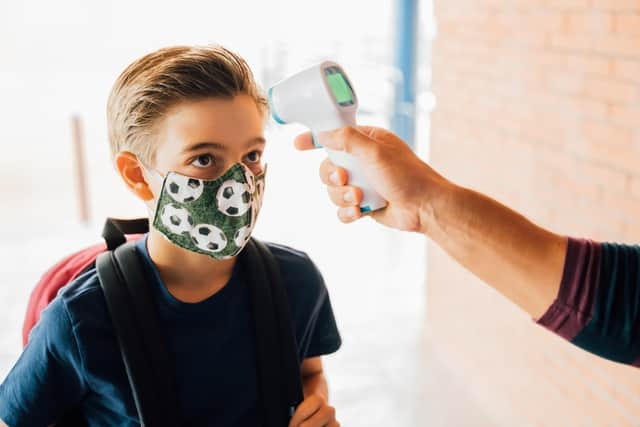Can my child go to school with Covid? Self-isolation rules after positive test result or symptoms - explained
and live on Freeview channel 276
Most Covid restrictions in the UK have now been lifted. But what are the rules on your child going to school if they have Covid or symptoms of the virus?
Here’s what you need to know.


Can my child go to school with Covid?
The current government advice is that pupils, staff and other adults who have Covid symptoms should follow guidance on People with Covid-19 and their contacts and public health advice on when to self-isolate and what to do.
Advertisement
Hide AdAdvertisement
Hide AdThe Gov.uk website said: “If you insist on your child attending nursery, school, or college when they have symptoms, they can take the decision to refuse your child if, in their reasonable judgement, it is necessary to protect other pupils and staff from possible infection with Covid-19.
“Their decision would need to be carefully considered in light of all the circumstances and current public health advice.”
The guidance for those at boarding school is that pupils should usually self-isolate in their boarding school and only in exceptional circumstances, where there is an overriding health or safeguarding issue, should a pupil self-isolate away from school.
What are the current self-isolation rules?
According to the NHS, you should try to stay at home and avoid contact with other people if you:
- have any symptoms of Covid and have a high temperature or you do not feel well enough to go to work or do your normal activities
- have tested positive for Covid - this means it’s very likely you have the virus
Advertisement
Hide AdAdvertisement
Hide AdIf you do have Covid, you can pass on the virus to other people for up to 10 days from when your infection starts. Many people will no longer be infectious to others after five days.
You should:
- try to stay at home and avoid contact with other people for five days
- avoiding meeting people at higher risk from Covid for 10 days, especially if their immune system means they’re at higher risk of serious illness from Covid, even if they’ve had a Covid vaccine
This starts from the day after you did the test.
If a child or young person aged 18 or under tests positive for Covid then they should try to stay at home and avoid contact with other people for three days. This starts from the day after they did the test.
Children and young people tend to be infectious to others for less time than adults and if they’re well and do not have a temperature after three days, there’s a much lower risk that they’ll pass on Covid to others.
If you are feeling unwell and do not test positive or test negative for Covid you should:
- try to stay at home and avoid contact with other people
- avoid meeting people at higher risk from Covid, especially if their immune system means they’re at higher risk of serious illness from Covid, even if they’ve had a coronavirus vaccine
Advertisement
Hide AdAdvertisement
Hide AdNurseries, childminders, schools and colleges will also all have their own health and safety risk assessments which they keep under review. so you will need to check with your child’s school to see their Covid rules and restrictions.
Comment Guidelines
National World encourages reader discussion on our stories. User feedback, insights and back-and-forth exchanges add a rich layer of context to reporting. Please review our Community Guidelines before commenting.
